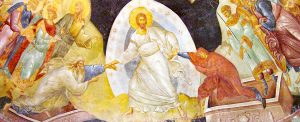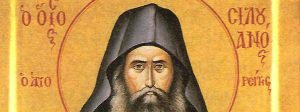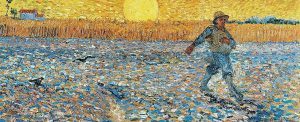Today is the first of the Saturdays of Souls leading up to the Orthodox observance of Great Lent. On these days the Church offers prayers for the comfort and deliverance of all the departed.
There is a rich teaching of the effectiveness of our interceding for the departed, and of the benefit they receive when we offer prayers, alms, and the Divine Liturgy in their name. Today, though, I want to highlight two pieces of Christian literature from the early Christian centuries, which reflect what was considered normal at that time. Both Thecla and Perpetua are to this day beloved saints and examples to us in courage, love, and intercession.
From chapter 8 of The Acts of Paul and Thecla:
The Acts of Paul and Thecla is a work of popular Christian literature which has never been included in any canon of Scripture but was nevertheless widely read in both the East and West. Tertullian wrote in De baptismo 17:5 (c. 190 AD), that this work had been composed a few decades earlier, so it is usually dated about 160 AD. Saint Eugenia of Rome, in the reign of Commodus (180–192), is reported in the Acts of her martyrdom to have taken Thecla as her model after reading the text. Saint Thecla is commemorated Sept. 24/Oct. 7
[When Thecla had been condemned to the wild animals in the arena,] she asked the governor, “that I may remain a virgin until I shall fight with the wild beasts.” So a certain woman Tryphæna, whose daughter was dead, took her into her home, and had her for a consolation. And when the beasts were exhibited, they exposed Thecla to a fierce lioness; and Tryphæna accompanied her. But the lioness licked Thecla’s feet; and all the multitude was astonished. And the crime of which she was accused was sacrilege. Then the women cried out, “O God, the judgments of this city are unrighteous!”
After this, Tryphæna again took her home. For her daughter Falconilla had died, and said to her in a dream, “Mother, you shall have this stranger Thecla in my place, in order that she may pray concerning me, and that I may be transferred to the place of the just.” Upon which Tryphæna, grieving that on the next day Thecla must fight the wild beasts, said, “My second child Thecla, come and pray for my child, that she may live for ever; for this I saw in my sleep.”
And Thecla, without hesitating, lifted up her voice, and said, “O God most high, grant to this woman according to her wish, that her daughter Falconilla may live forever!”
From The Passion of Saints Perpetua and Felicity, 203 AD
Vibia Perpetua was executed in the arena in Carthage on 7 March 203. The account of her martyrdom has special interest as much of it was written by Perpetua herself before her death. This makes it one of the earliest pieces of writing by a Christian woman. She is commemorated Feb. 1/14.
A few days after, while we were all praying, suddenly in the midst of the prayer I uttered a word and named Dinocrates; and I was amazed because he had never come into my mind save then; and I sorrowed, remembering his fate. And straightway I knew that I had been counted worthy to ask for him. And I began to pray for him long, and to groan unto the Lord. Immediately the same night, this was shown me.
I beheld Dinocrates coming forth from a dark place, where were many others also; being both hot and thirsty, his raiment foul, his color pale; and the wound on his face which he had when he died. This Dinocrates had been my brother in the flesh, seven years old, who being diseased with ulcers of the face had come to a horrible death, so that his death was abominated of all men. Therefore I had offered my prayer for him; but between him and me was a great gulf, so that neither might go to the other. And in the same place where Dinocrates was, there was a font full of water, its edge higher than was the boy’s height; and Dinocrates stretched up as though to drink. The font had water in it, but I was grieved, because due to the height of the edge he might not drink.
And I awoke, and I knew that my brother was in travail. Yet I was confident I should ease his suffering; and I prayed for him every day till we passed over into the camp prison. (For it was in the camp games that we were to fight; and the time was the feast of the Emperor Geta’s birthday.) And I prayed for him day and night with groans and tears, that he might be given me.
On the day when we abode in the stocks, this was shown me: I saw that place which I had before seen, and Dinocrates clean and whole of body, finely clothed, in comfort; and the font I had seen before, the edge of it being down to the boy’s navel; and he drew from it water that flowed without ceasing. And on the edge was a golden cup full of water; and Dinocrates came up and began to drink from it; and the cup never emptied. And being satisfied, he departed away from the water and began to play as children will, joyfully.
And I awoke. Then I understood that he was translated from his pains.
I will forbear to interpret or draw conclusions; I just want to let these women’s example inspire us to remember the unity of the Church, the communion of saints, and the effectiveness of our prayers that the departed be granted mercy and hope and a place of rest with the saints.






